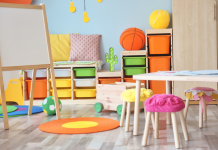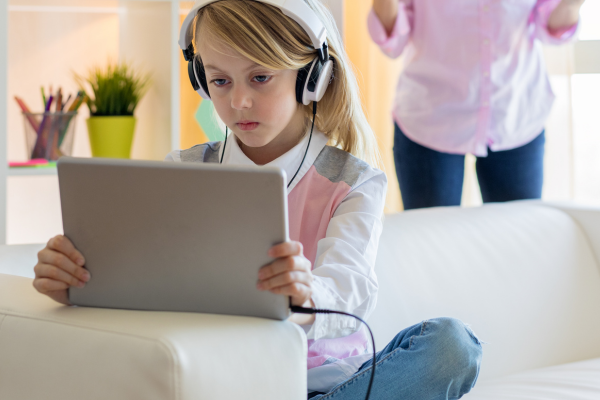These are not normal days. And there are not a lot of examples for us to follow on how to Parent in a Pandemic. So what are we supposed to do? How do we help our kids through this?
Parenting is hard! (Can I get a witness?!) A quick Amazon search results in over 60,000 books, Google provides over 257,000,000 results, and every person you ever come into contact with has their own opinion on how it’s supposed to be done and most are all-too-happy to tell you how you’re doing it wrong. This is on a normal day.

First, please know: you’re not supposed to know what to do. We’re all figuring this out: parenting, work, school, quarantine, reopening, all of it! Below are some suggestions from counselors and therapists on how to help your kids deal with the pandemic situation.
Realize your kids are stressed. Some kids are visibly struggling with the restrictions of these days. Others have a different perspective. As my friend’s son exclaimed, “Y’all are all stressed and crazy, while I’m over here livin’ my best life!” Either way, they are stressed. The loss of structure, predictability, interactions, and activities causes stress in them, just like it causes stress in you. They may exhibit it in different ways, but it is there.
They may also be scared. Scared for their health, as well as family/friends’ wellbeing. Scared they won’t be able to go back to school. Scared things won’t be the way they were. Scared things will return to the way they were.
Recognize kids may not be able to communicate any of this. Kids may struggle to identify how they feel and why they feel that way, much less articulate it in a conversation. Their behavior is how they communicate, and it can be challenging to interpret.
- Anger: Remember that anger is a secondary emotion resulting from hurt or fear. If your child is angry, identify the triggers and de-escalate the situation at hand. Then, when things are calmer, ask your child about their fears of the pandemic or their grief from losing the normal things. Help them identify the physical signs of anger in themselves (increased heart rate, raised shoulders, higher-pitched voice) and ways to counteract these such as taking deep breaths, pushing against a wall, or squeezing a pillow tight. These things give them a sense of control they may not be able to get otherwise.
- Regression: Some kids regress in social and/or communication skills. They will whine when they are unhappy or baby talk when they want something. They may forget how to greet others or carry on a conversation with a friend. They may throw a temper tantrum reminiscent of toddler times or grunt a request while pointing. They may return to a favorite food from their younger years or pull out an old toy. They are trying to find something that grounds them to a more comfortable time. While the whining and infantile behavior can be frustrating, recognize their unconscious goal and help them find a more productive way to cope. Watch a family movie or make their favorite food. Pull out photos and scrapbooks from fun times in the past and tell stories of favorite family moments.
- Withdrawal: Kids get depressed. Prior to the pandemic, the CDC reported 3.2% of children ages 3-17 have diagnosed depression. They might sleep way more than usual, avoid physical activity, and prefer staying in their room. These things in moderation help with coping but prove dangerous in excess. Insert some type of family physical activity each day – walk the dog, ride bikes around the neighborhood, jump on the trampoline. This produces endorphins that help combat depression. Set timers on electronics or schedules for sleeping. We use the Amazon Echo to set reminders for different activities throughout the day and this helps, too.
Get them moving! Physical activity is essential for kids’ physical and mental health. Especially during a Pandemic where we are at home. Unfortunately, screen time and couch lazing can be an easy default these days. Studies show that screen time physically reduces function of your brain, causes impaired vision, contributes to obesity, and decreases mental health – all very serious and very real dangers, even more so in children whose bodies, minds, and emotions are developing. It is important to intentionally and actively combat this! Take family walks early in the morning or late in the evening. Ride bikes around the neighborhood. If you have access to a pool, go swimming. Golf and tennis are great outdoor activities that allow for social distancing. Check out our summer buck list for a few social distancing ideas! Parents can enjoy this too.
Go on a media diet. With 24/7 news available on multiple devices from various perspectives and everyone all together all the time, your family may be consuming more media than usual. While adults may view this as informative, it often can overwhelm children (and other adults). It makes their world feel like it’s all bad all the time. Though they may not appear to be paying attention, they absorb the information around them way more than you know. Carefully choose, and possibly limit, what media will be consumed around the kids. Make sure you are sensitive to their presence and what they hear. Help them process the information they absorb by having family discussions about the day’s news stories they heard.
Above all, grace upon grace! Grace: unmerited divine assistance given to humans for their regeneration (rejuvenation). Give your kids grace. They don’t know how to handle this well without your guidance. They are trying to understand, cope, and adjust without the benefit of the years of experience you have. Their first response often will not be good, so consider it an opportunity to show them love and teach them how to cope and manage unexpected situations. Give yourself grace. Recognize that you are winging it on the fly here! We all are. You are not supposed to know how to do this, so learn as you go, adjust, and try again. Give others grace. They are winging it, too.
Parenting in a pandemic is difficult and some days are mere survival, but this can be a time when you connect with your kids in ways that “normal life” doesn’t make time or space for. Help them through this and they will trust you to help them through other challenges in life, as well.















